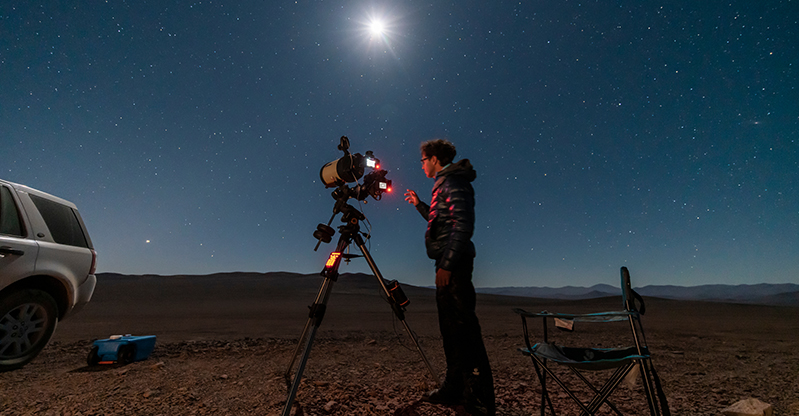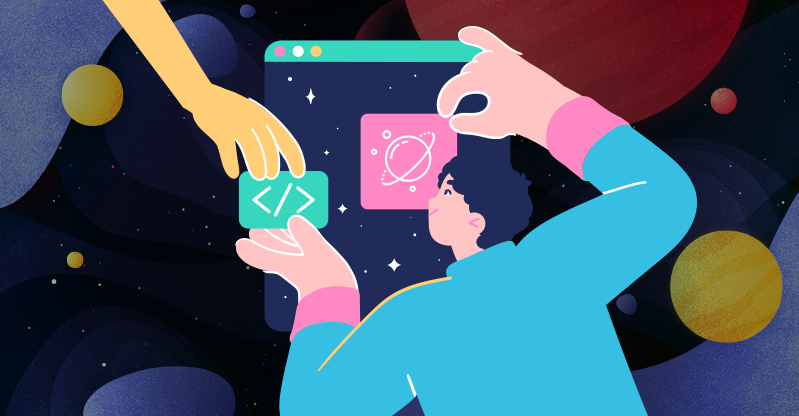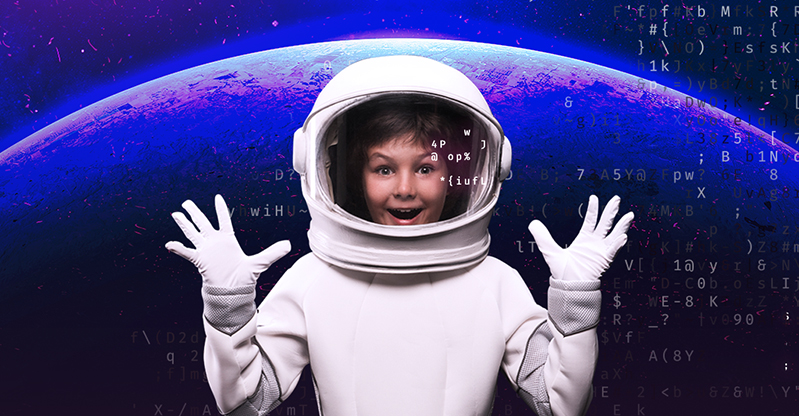Coding is everywhere. The field of programming is related (and necessary!) to almost every scientific discipline. Coding is even an essential part of the worlds of music, crafting arts, and even dancing.
Learning how to code nurtures the individual with essential skills to face the near future and succeed. Learning the basics of coding gives your children the unique ability to understand the world differently — a world where all dreams and projects are both doable and achievable. An outlook will provide them with the right tools to do anything they want and improve their self-confidence and self-esteem.
But, to what extent is coding related to everything? Which other fields we are intrigued by can be connected to programming? As we’ve mentioned in the past, medicine is related to coding; on the other hand, fields like magic can also connect with programming. Surprising, isn’t it?
Well, today we want to take you to the stars. We’d love to invite you to take a trip to outer space. No – we will not pay for a first-class ticket in Elon Musk’s next expedition (unfortunately!). In the next couple of paragraphs, we are going to show you how coding and astronomy are deeply connected. Who knows? Maybe if your kids learn to code today, they’ll be the Buzz Aldrin of the 2040s.
Ready to see all the things astronomers and programmers have in common? Wear your astronaut suit, or at least bring your Galilei telescope over, and let’s cut to the chase.
The things in common between astronomers and programmers!
So that you know, programmers and astronomers have many things in common. Let’s look at this fact from an open-minded perspective. We can understand that both of them care and are deeply interested in the wonders of the universe, in the world around them, and in providing unseen answers to ancient questions many people have.
Besides having the necessary technical knowledge, a good programmer has excellent communication skills, is very good at managing time and tasks, has a positive attitude, can focus on the big picture, and is a good team player.
On the other hand, astronomers are highly investigative people, meaning they are curious, have good communication skills, and spend a lot of time looking for answers from many different persons and sources. Many astronomers, just like programmers, tend to be attracted by artistic fields, creativity, and self-expression. See? Many things in common!

The need for coding in astronomy!
Yes, you are right. Astronomers need to code to achieve their everyday tasks both rapidly and successfully. Jeff Magnum, from the NRAO says that “(…) Astronomers interpret their findings and generate theoretical simulations of astrophysical phenomena using a diversity of programming languages. Most astronomers, in my opinion, use C, C++, and Python in their studies. You’ll also come across some older Fortran codes that are still in use. However, most astronomers do not major or minor in computer science in college. [Astronomers] We usually take a course or two in a programming language that we want to learn, then put what we’ve learned into practice by applying it in our study. Many astronomers learn programming languages just by using them (…)”.
According to many influential figures in computer science and astronomy, the top-notch astronomy devices and modern astronomy require a high level of knowledge in various programming languages and in coding itself. Some state that those who don’t know how to code or properly use a programming language are the astronomers who will be left behind.
Can you imagine? Your kids might be the ones leading the next mission to the moon, or even the ones planning the first human settlements on either Mars, Jupiter, or Venus. But how can this happen? By strengthening their future-ready skills!

First, it’s code. Then the stars.
The sky’s the limit! This well-known sentence has never been more accurate: if your kids learn to code today, they will, quite literally, reach the stars tomorrow!
One thing is for sure: they need to learn code in a supportive learning environment where mistakes are seen as valuable learning experiences. Through this, reaching the stars will also be an internal process in which your children will increase their self-confidence and self-esteem.
Do you want happy children who genuinely believe in themselves? Check out the variety of live, online courses offered by Tekkie Uni, and let yourself be surprised.





